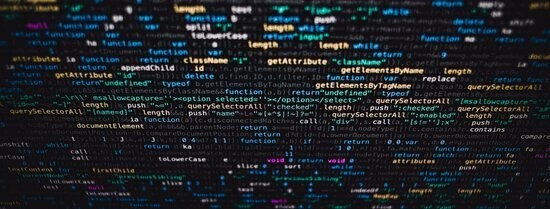The programme Reference Man by BBNVARA investigates the consequences of a world that is attuned to the 'standard man'. The four-part series can be seen from Monday 10 to Thursday 13 January at 22.15 hours at BNNVARA on NPO 2. PhD student Joris Krijger of Erasmus School of Philosophy talks about the use of Artificial Intelligence (AI) by banks and the accompanying ethical discussions.
Can you explain what the series is about?
"Reference Man" examines the dangers and shortcomings of a society in which the white heterosexual male has become the norm of things. Sometimes this goes well, but sometimes this starting point causes problems. Think of medicine studies that are not always representative because they are mainly done on men. This episode is about algorithms and Artificial Intelligence. You could see AI as statistics 'on steriods'. It's big batches of data from which you extract patterns. If there is an inequality in the data, AI can pick it up without noticing and you will see it everywhere in the system.''

Why did BNNVARA come to you?
"I combine my research with an appointment at the Volksbank where I work as a specialist in ethics and AI. Banks use AI for various applications, such as HR and lending. In my research, I look at the ethical risks of those systems. Because I am involved in both practice and research, I can tell something about the theoretical side of bias of algorithms and also the practical side in the financial sector. From me, they mainly wanted to know what is done with data at banks and how AI plays a role in that."
How does a philosopher end up at a bank?
"I studied media studies and also philosophy and psychology. For me, the common denominator has always been the interface between people and technology. I ended up at the bank because I won a prize for my philosophy thesis on the banking crisis in 2008. The thesis dealt with the role of technology and the moral consciousness of bankers. The bank then called me and asked if I would like to work on ethics and algorithms there."
What makes the combination valuable?
"To be able to evaluate AI systems, it helps enormously to really be in the context. Otherwise, it is very difficult to find the possible applications of AI and the discussion sometimes remains hypothetical. I like working with practice, but I also want to do something with it academically. My research is about how we give ethics a place in a rapidly automating and digitising environment. I can take what I learn to the bank and the insights I gain at the bank with me in my research."
Why are ethics important to a bank?
"More and more organisations are sitting on a box of data and realise that they can do a lot with it. At the same time, it is becoming clearer that there are downsides if you don't handle it responsibly. AI can make decisions without you even knowing on what basis. If AI were in charge, it could happen that someone could not get a mortgage because the computer sells 'no' while it is unclear what is behind this. Systems recognise patterns in data that can be traced back to existing social inequalities, such as the historically lower income of women. An AI that has to decide on your credit limit, for example, unconsciously takes all this into account in its assessment.
I find that worrying and organisations that use AI need to be aware of that. Algorithms can be a great tool and at their core, distinguishing certain groups as well as possible can be very useful. Think about the prevention of money laundering. If you want to prevent that completely, you will have to let not a single transaction take place, but that is of course impossible and undesirable. So you always take a risk, and algorithms can help to pick out the biggest risks in millions of transactions. What you want to avoid is that the system starts showing unethical behaviour by, for example, labelling certain groups as high risk by default.
When you want to equalise inequality between men and women, for example, you get into a complex ethical discussion. Does 'equal treatment' mean, for example, that you reject more qualified men in order to give more women a chance? Or will you judge everyone purely on the basis of their qualifications, regardless of their group status? Deep learning can also be used to predict things very well, but this can become so complex that you can no longer explain how such a prediction is made. What is more important to you as an organisation; that you can explain it well or that you have the best predictions? These kinds of dilemmas are very interesting for me as an ethicist. I feel like a kid in a sweet shop in that respect."
''What you want to prevent is that the system starts showing unethical behaviour by, for example, labelling certain groups as high risk by default.''
What was it like to take part?
"I found it really fun to do and an honour that I was asked. Just pointing in the vacuum so that infographics can be edited in later was a bit awkward and gave rise to a few funny moments during the recording. I very much welcome this kind of programme. I have already seen the programme and the information it contains is of a high level. Many experts speak and there is room to really go into depth."
The episode about AI will be broadcasted on Tuesday 11 January at 22:15 on NPO2. You can also watch the episode on npostart.nl or via the NPO app.
- PhD student
- Related content

